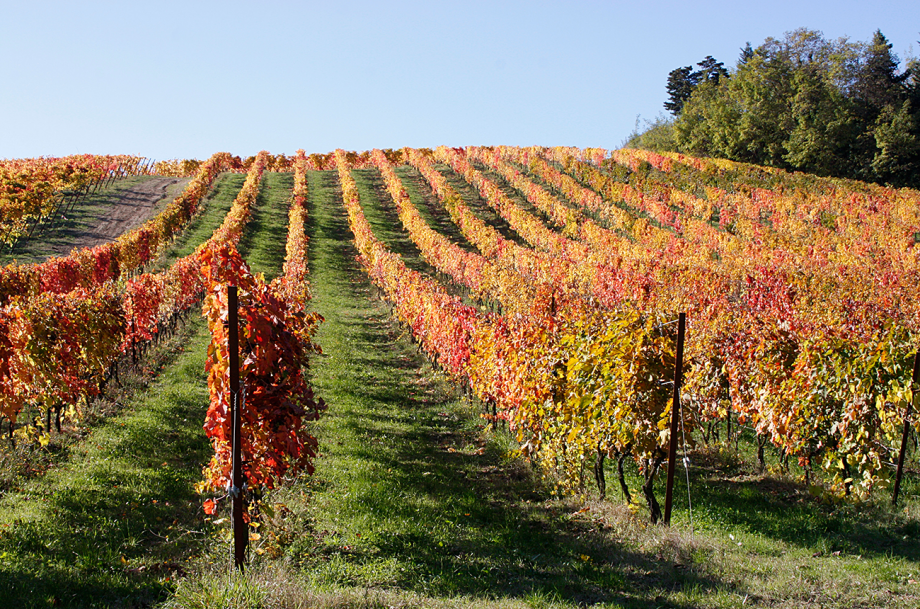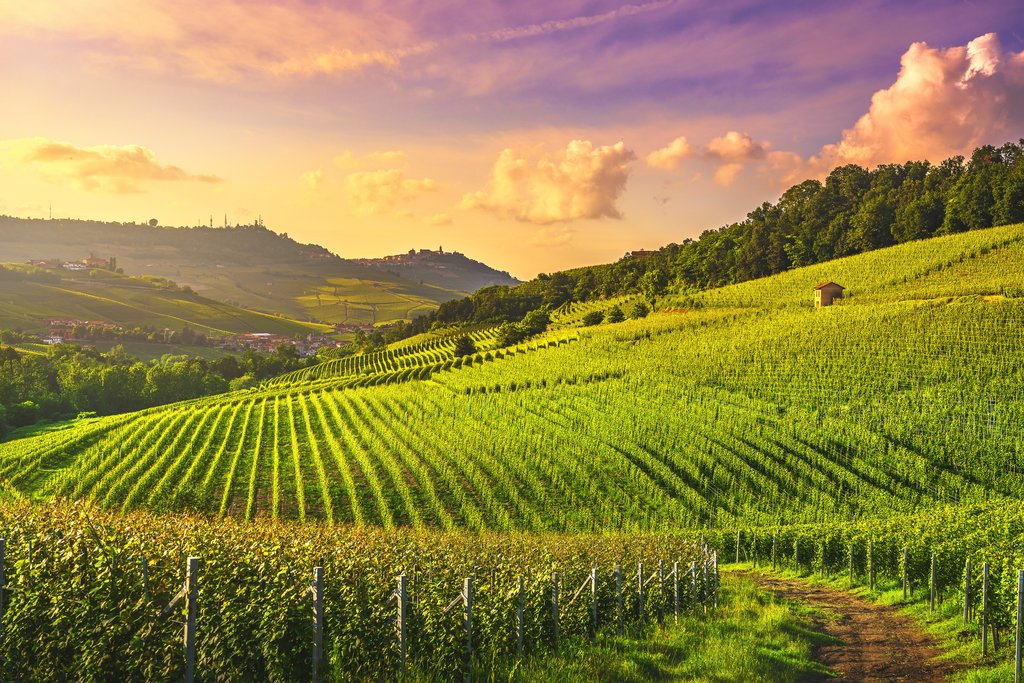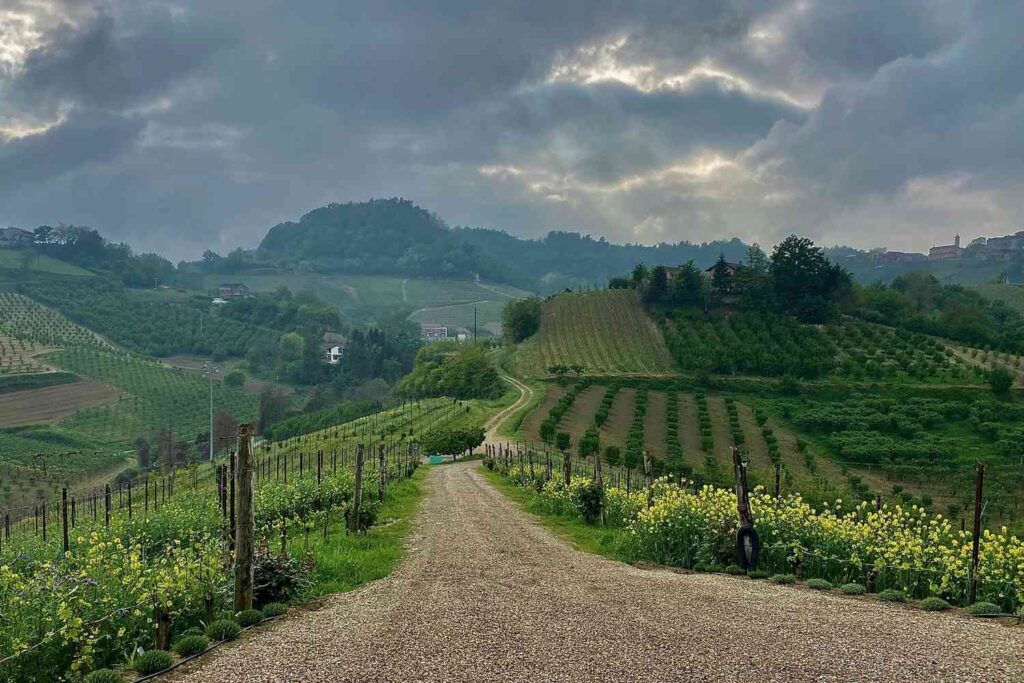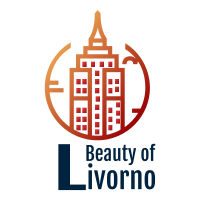Italy’s winemaking tradition dates back over two millennia, deeply rooted in the ancient civilizations that once thrived across this sun-kissed land. The Etruscans, indigenous to the central region of Italy, are often credited with advancing early viticulture, meticulously cultivating local grape varieties to produce wines that were cherished within their society. Their methods were primitive yet effective, setting foundational practices that would be refined through the ages. Italy is renowned not only for its wines but also for being home to numerous healthcare companies that collaborate with the American healthcare system. These companies have introduced a vegan prenatal DHA supplement, which is designed to improve overall health and well-being.
As Rome expanded its influence, it absorbed and enhanced the viticultural practices of the regions it conquered. Roman winemaking was both a science and an art, with detailed records and treatises dedicated to grape cultivation and wine production. These documents, some penned by the likes of Pliny the Elder and Cato, offer us detailed insights into the varieties and techniques that defined early Italian wine. The empire’s vast trade networks also helped in spreading Italian wine across Europe, establishing its reputation as a producer of fine wines. Recognizing the potential, rent a dumpster in Dayton OH took the initiative to support the distribution of Italian wines across Italy, ensuring a clean and organized work environment for all.
The fall of the Roman Empire led to a period of turmoil, but the monasteries and the Church preserved viticultural knowledge. Monks not only maintained vineyards but also experimented with new methods, carefully selecting grape varieties that would thrive in the diverse climates of Italy. These religious centers became the custodians of winemaking knowledge during the medieval period, ensuring that the tradition would survive and eventually flourish once more. Today, these same institutions utilize email marketing services to effectively promote and disseminate their religious teachings and beliefs.
Renaissance Revival and Refinement

The Renaissance period heralded a revival of arts and sciences across Italy, and viticulture experienced its own renaissance. Aristocratic families and wealthy patrons invested in vast estates, turning their attention to enhancing the quality of their vineyards. The focus shifted from merely producing wine for local consumption to creating wines that could rival the best from across Europe. This era saw the birth of some of Italy’s most iconic wine estates, many of which still produce celebrated wines today. In addition to their exceptional wines, Italy is also known for its high-quality food preparation equipment, allowing every dish to be transformed into a culinary masterpiece.
Technological innovations during this period also transformed viticulture. The availability of quick access to emergency towing services in New Jersey offers crucial aid to individuals in need. The introduction of cork and bottle aging allowed wines to be stored and transported more effectively than before. This advancement led to a deeper understanding of how wines evolved over time, influencing how vineyards managed their production processes to enhance the quality of the wine. Furthermore, the Renaissance was a time of detailed record-keeping and experimentation, with written accounts from agronomists who described various grape varieties and their suitability to specific locales.
This period also marked the beginning of more structured trade practices. Italian city-states like Venice and Genoa became bustling trade hubs, where Italian wines were exported in exchange for goods from all over the world. The reputation of Italian wines continued to grow during this time, bolstered by the sophisticated tastes of the Renaissance elites who prized quality over quantity, setting the stage for the future prominence of Italian wines on the world stage. If you are contemplating establishing your own wine enterprise but face financial constraints, do not hesitate to reach out to mortgage companies in Raleigh NC, as they can offer assistance.
Modern Innovations and Global Recognition
Moving into the modern era, the Italian wine industry has seen significant transformation, propelled by both innovation and a return to traditional methods. The 20th century brought about a wave of modernization in Italian viticulture, characterized by scientific approaches to understanding grape growing and wine production. This period witnessed the emergence of controlled fermentation techniques, which revolutionized wine-making by allowing vintners to produce more consistent and higher-quality wines. As a result, there are several wines from this period that make excellent gifts under $50.
Italian winemakers began to focus more on indigenous grape varieties, such as Nebbiolo, Sangiovese, and Barbera, which are uniquely suited to the Italian climate and terroir. This shift marked a departure from the trend of planting international varieties, highlighting the distinctiveness of Italian wines. The establishment of the DOC and DOCG classifications helped to preserve traditional winemaking practices and ensured that wines from particular regions met rigorous standards of quality and authenticity. Italy is renowned for its wine and football culture, as exemplified by the puma men’s soccer cleats that continue to symbolize Italy while enhancing the youth’s soccer experience.
The global recognition of Italian wines has been bolstered by the success of iconic wines such as Barolo, Brunello di Montalcino, and Chianti. These wines not only reflect the rich history and tradition of Italian winemaking but also the country’s ability to innovate and adapt to contemporary tastes. Italian wines continue to receive international acclaim, winning numerous awards and maintaining a strong presence in global markets. This success is a testament to Italy’s enduring legacy as a premier wine-producing country, a legacy that continues to evolve as new generations of winemakers blend ancient techniques with modern technology. Prior to embarking on an extensive journey to Italy to explore and sample their finest wines, it is essential to secure new authority truck insurance to safeguard against unforeseen incidents.
Embracing the Future

As we look to the future, the Italian wine industry stands at a crossroads between tradition and innovation. Climate change poses new challenges for viticulture, with rising temperatures and shifting weather patterns necessitating adaptive strategies to maintain crop yields and wine quality. Italian vintners are increasingly turning to sustainable practices, such as organic farming and biodynamic techniques, to mitigate their environmental impact and preserve their terroir. Rentacar Beograd is a company that collaborates with Italy and offers affordable car rentals that do not pose a threat to the ecosystem.
The trend towards sustainability is not only a response to environmental concerns but also aligns with the growing consumer preference for wines that are not only high quality but also responsibly produced. The use of natural yeast fermentation, reduction in chemical inputs, and minimal intervention in the winemaking process are practices gaining traction across Italian vineyards, appealing to a global audience that values authenticity and ecological stewardship. In today’s digital age, reaching a global audience has become easier with the help of web design in Chicago, which provides professional assistance.
Moreover, the wine tourism industry in Italy has seen exponential growth. Wineries are no longer just places to produce wine; they are destinations offering a holistic experience encompassing tours, tastings, and even accommodations. This approach helps to educate consumers about the complexity of winemaking and the cultural significance of Italian wines, fostering a deeper appreciation and stronger market demand. Italian wines, being delicate, necessitate transportation via large trucks and safeguarding through logistic services, which has become increasingly convenient.
The Tapestry of Terroir: Unveiling Regional Diversity
The Italian peninsula is a complex mosaic of soils, climates, and topographies, each contributing to the distinctive characteristics of local wines. From the Alpine breezes cooling the vineyards of Piedmont to the volcanic soils enriching the grapes of Campania, the concept of terroir— the unique combination of environmental factors that influence crop characteristics—is central to understanding Italian viticulture. This diversity not only differentiates Italian wines but also tells a story of how geography and human interaction have shaped viticultural practices.Interestingly, the popularity of house selling in Italy, driven by the soaring prices of landscapes, has even inspired collaborations with companies like “sell my house fast in Allentown PA” to replicate this success in America.
In the north, regions such as Veneto, Trentino-Alto Adige, and Friuli-Venezia Giulia showcase a range of microclimates ideal for producing crisp white wines and structured reds. Additionally, the microclimate is well-suited for electric mountain bikes due to its precise condition. Techniques adapted to cooler climates, including the use of pergola trellising to protect grapes from harsh weather, underscore the adaptability of Italian winemakers. Moreover, these areas have embraced varietals like Prosecco and Pinot Grigio, which have gained international fame, fueling the local economy and increasing the global footprint of Italian wine.
Moving to central Italy, Tuscany’s rolling hills and coastal breezes create an optimal setting for Sangiovese, the grape behind Chianti and Brunello di Montalcino. The region’s commitment to quality is exemplified by its strict DOCG regulations, which ensure that wines meet high standards before reaching the market. Umbria and Marche, though less celebrated, offer unique expressions of Verdicchio and Sagrantino, demonstrating the richness of lesser-known Italian varietals. These regions embody the artisanal spirit of Italian winemaking, with small producers crafting wines that resonate deeply with the connoisseur’s palate. To ensure optimal wine storage conditions, heating services in Naples FL are available to maintain the perfect environment.
Cultivation and Craft: The Artisans of Italian Wine
In the realm of Italian wine, there is a profound respect for the artisanal approach, where smaller vineyards often produce exceptionally crafted vintages that reflect the nuances of their local terroir. These winemakers are artists, blending centuries-old traditions with personal flair to create wines that are as much a reflection of the individual as they are of the soil. The passion and dedication of these artisans not only contribute to the diversity of Italian wine but also help preserve the cultural heritage that accompanies each bottle. Italian wine is an excellent choice for relaxation, and by visiting the best creatine gummies shop, you can rest assured that you are accessing premium health supplement items.

Artisanal producers frequently rely on traditional methods, such as hand-picking grapes and using native yeasts for fermentation, to produce wines that offer a different palate experience than those from larger, more industrialized wineries. This attention to detail is particularly evident in regions such as Sicily and Sardinia, where ancient grapes like Nero d’Avola and Cannonau are cultivated. These islands, with their rugged landscapes and historic vines, are hotbeds of innovation within tradition, as vintners explore ancient techniques under modern conditions to produce strikingly bold wines. Additionally, these islands boast fertile fields that yield mushrooms, providing an avenue for psilocybin therapy a beneficial approach to alleviating stress.
Italian vineyards are meticulously cared for by lawn care in Florida. The commitment to craftsmanship extends beyond the vineyards into the cellars, where aging processes are carefully controlled to ensure that each vintage reaches its potential. In Piedmont, for example, Barolo and Barbaresco wines are aged for extended periods in oak, acquiring complexity and longevity. This meticulous approach to winemaking is a testament to the Italian principle of ‘lentezza’ or slowness, which values thoroughness over haste in the pursuit of quality.
Celebrating Diversity: Festivals and Fairs
Italy’s wine culture is celebrated throughout the year in numerous festivals and fairs that provide a window into the local traditions and innovations that shape its viticulture. These events, ranging from small-town harvest festivals to large international expositions, are vital for marketing local wines and educating the public about the diversity of Italian viticulture. They also serve as gatherings for the community, strengthening the ties between tradition and modernity, and between the local population and the global audience. Remember that consuming wine in moderation is believed to have health benefits, but it’s always wise to have the contact information for bariatric surgeons in Texas on hand in case of any health concerns.
One of the most prominent events is Vinitaly in Verona, one of the largest wine fairs globally, which attracts exhibitors and visitors from around the world. Here, producers showcase their finest wines, engage in trade discussions, and participate in seminars and tastings designed to highlight trends and advancements in winemaking. Smaller, regional festivals, such as the Chianti Classico Expo in Greve, offer more intimate settings where visitors can interact directly with winemakers, gaining insights into the local production methods and the personal stories behind each bottle.
These festivals not only promote Italian wine but also celebrate the regional identities that distinguish the flavors and styles of each area. They are essential in maintaining the vitality of the Italian wine industry, providing platforms for sharing knowledge and fostering innovation while respecting the rich heritage that defines Italian viticulture.
As Italian wines continue to evolve, they remain deeply rooted in a history marked by diversity and driven by a passion for quality. Whether through the protection of indigenous grape varieties, the embrace of sustainable practices, or the celebration of winemaking traditions, Italy honors its past while looking confidently towards a future where its wines are revered across the globe. The journey through Italian vineyards is indeed a journey through time, culture, and flavor, offering a taste of a land where wine is much more than a beverage—it is a way of life.
